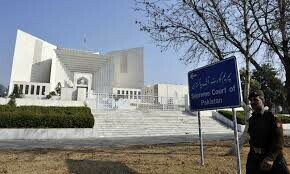ISLAMABAD, April 9: Nineteen years after the huge Ojhri Camp arsenal blew up this day in 1988 the cause of the tragedy remains undisclosed, though its leftovers continue to kill people.
It claimed its latest victim on February 17 when a teenaged labourer was killed while digging earth in the Pindi Food Street and hit a buried projectile which exploded.
Over 100 men, women and children were killed and many times more were wounded by the thousands of missiles and projectiles which exploded mysteriously and rained death and destruction on Rawalpindi and Islamabad on April 10, 1988.
The then prime minister Mohammad Khan Junejo appointed two committees — one military and the other parliamentary — to probe the tragedy. But his action so infuriated President Gen Ziaul Haq that he dismissed Junejo on May 29, 1988 — the main charge being that he failed to implement Islam in the country.
While the parliamentary committee, headed by old politician Aslam Khattak, went out with the Junejo government, the military committee under Gen Imranullah Khan submitted its report before the government’s dismissal.
Governments of prime ministers Benazir Bhutto and Nawaz Sharif which followed Gen Zia’s fiery death in a mysterious plane crash on August 17, 1988, failed to make public Gen Imranullah Khan’s findings.
Junejo’s defence minister Rana Naeem Ahmed told Dawn on Saturday that he had received the report but claimed the ISI seized it in a raid on his office the day after the government was dismissed.
“They returned all my belongings, except the briefcase that contained the report,” he said, recalling that the report had not held any one responsible for the incident.
In fact, the report was inconclusive and focused on the causes of the blast which it declared to be an accident, he said.
But he rejected the rumours that the report had held Gen Akhtar Abdul Rehman, the then chairman Joint Chiefs of Staff Committee, directly responsible for the incident.
Interestingly the Ojhri dump blew up on a day an American team was arriving to take account of the vast amount of military hardware that the US had supplied Pakistan to fuel the anti- Soviet jihad in Afghanistan.
Experts say the missiles that continue to be unearthed to this day, have less chance of exploding if found dud. But they can cause human and property loss, if detonated somehow, as happened in several such incidents.
A dud missile was found by some labourers near a shrine next to Faizabad flyover only a month ago, on March 10.
It was a bright and sunny morning of April 10, 1988, when thousands of missiles and projectiles started raining down on Rawalpindi and Islamabad after huge and mysterious explosions at Ojhri Ammunition Depot, situated in the densely-populated Faizabad area.
Officially the death toll was 30, but independent estimates put the figure much higher. Prominent among those killed was a federal minister Khaqan Abbasi whose car was hit by a flying missile while he was on his way to hometown Murree. His son who had received head injuries and gone into a deep coma, died some two years ago, after remaining on artificial respiration for 17 years.
Chaos and rumours that followed the incident created panic among fleeing people. Many people thought that India or Israel had attacked Pakistan. Some said India had targeted Kahuta nuclear plant.
The Ojhri Camp was used as an ammunition depot to supply arms to Afghan Mujahideen fighting against Soviet forces in Afghanistan. There were reports that an American defence audit team was about to undertake a visit to Pakistan for auditing of the stocks of the weapons provided to Pakistan Army and allegedly the camp was blown up deliberately to cover up the fact that some Stinger missiles had been sold off to other countries.
Some reports said the Ojhri Camp had about 30,000 rockets, millions of rounds of ammunition, vast number of mines, anti- aircraft Stinger missiles, anti-tank missiles, multiple-barrel rocket launchers and mortars worth $100 million in store at the time of blasts that destroyed all records and most of the weapons thus making it impossible for anyone to check the stocks.
Political observers strongly believe that prime minister Junejo was sacked not because of his failure to enforce Islam, as claimed by Gen Zia, but due to a rift between the two over the Ojhri Camp investigations.
Soon after the incident, Mr Junejo had ordered an inquiry and announced on the floor of the National Assembly that the report would be presented before the house and those responsible would be taken to task.
Some of the opposition members of the present Senate called for making the Ojhri Camp report public, but the Musharraf government took the position that the contents of these inquiries could not be made public “in the larger national interest.”
It is interesting that the opposition members, who called for making the report public, did not make any attempt to do it when their parties were ruling the country.
A senior leader of the People’s Party Parliamentarians (PPP) admitted that the party did not make serious efforts to make the report public during its two stints in government.
However, he claimed that during the second PPP government, an effort was made but it didn’t bear fruit as there was considerable resistance from the “concerned quarters.”
Information secretary of the Pakistan Muslim League-N Ahsan Iqbal also admitted that they had failed to make the report of Ojhri Camp tragedy public.
However, he noted that the PPP and the PML-N agreed in the Charter of Democracy to set up a truth commission to probe Kargil and other incidents and to inform the masses about the real causes behind these national tragedies.















































Dear visitor, the comments section is undergoing an overhaul and will return soon.